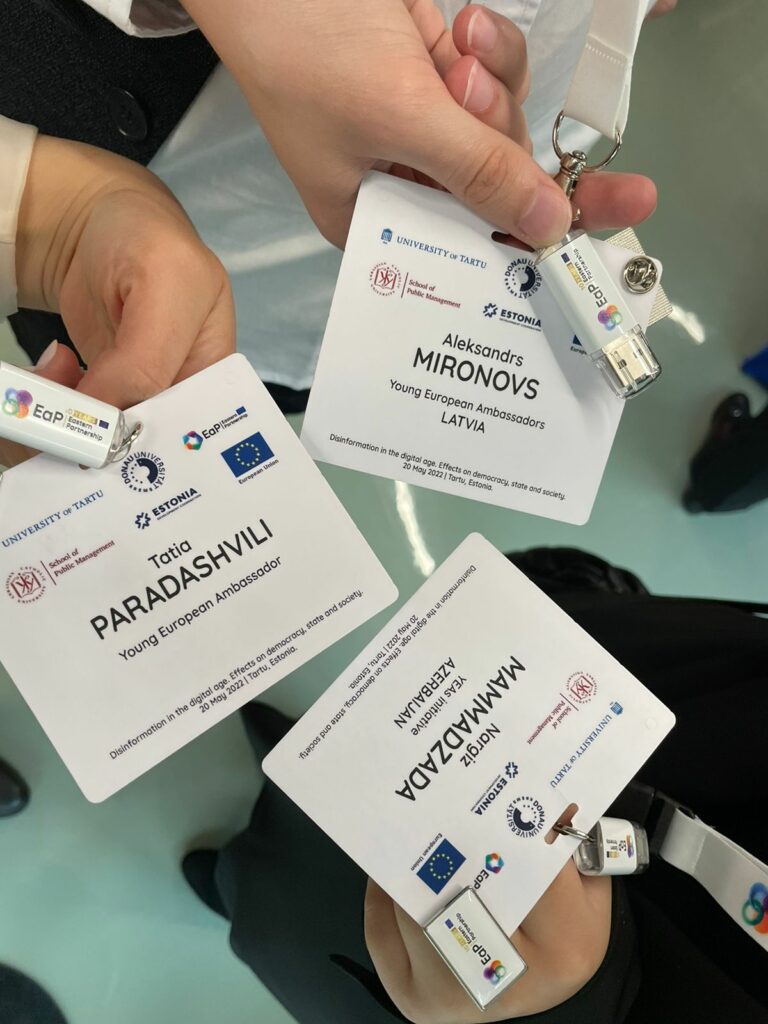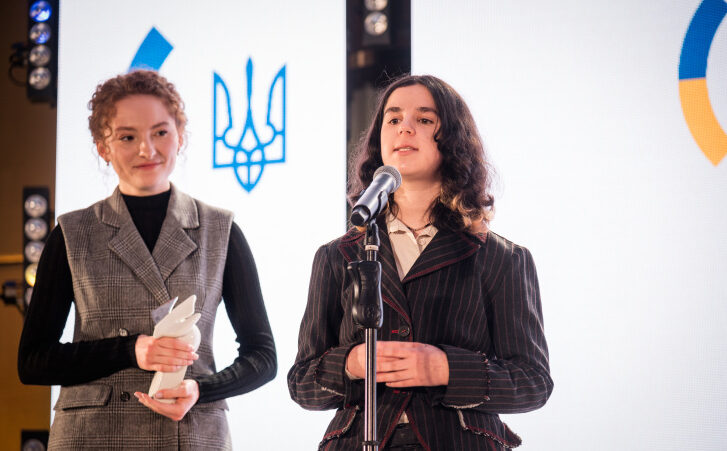
Blog: Internet voting and disinformation – lessons from the digital democracy conference in Estonia
On 19-20 May, three Young European Ambassadors (YEAs), from Georgia, Azerbaijan and Latvia, participated in the Eastern Partnership e-governance conference in Tartu, Estonia. Learning from the best digital practices of Estonia, as well as from digital solutions in Eastern Partnership countries, the YEAs expanded their knowledge on electronic voting, the negative impact of social media on democracy, and various types of disinformation.
YEAs Tatia Paradashvili, Nargiz Mammadzada and Aleksandrs Mironovs participated in the two-day conference that brought together current and former experts from the OSCE, UNESCO, Council of Europe, European Commission and other institutions, and NGOs, mainly from the Eastern Partnership countries.
The special guest of the conference was former Estonian President Toomas Hendrik Ilves, who gave an introduction into the history of digital disinformation, and how it spread to become a widespread phenomenon, after the power of social media was demonstrated to the whole world during the events of the Arab Spring in 2010.
Conference panellists discussed disinformation campaigns that have actively impacted our societies, after the annexation of Crimea in 2014, before the Brexit referendum and the presidential elections in the United States. The conference also outlined the opportunities that were presented by electronic internet voting that Estonia has been practising in local and national elections since 2005.
One of the key conclusions drawn by many panellists and spelled out by former President Ilves is that the development of science (the creation of social media and smartphones, the expansion of internet access) had ironically created a world where science and truth are under threat and increasingly mistrusted due to disinformation spread by authoritarian countries such as Russia, Iran, and China. Therefore, disinformation and cyber threats always need to be acknowledged, studied and dealt with.
As representatives of the younger generation, it is especially important for us to distinguish disinformation and to take responsibility for our activities on social media. The conference allowed Tatia, Nadia and Aleksandrs to expand their knowledge of the topic and to enjoy a great time together in the student capital of Estonia.

LATEST

Building Europe: Poland’s experience of joining the European Union and lessons for Ukraine

World Health Day 2024: My Health, My Right

EUREKA MEETS EUROPE – opportunities to develop and study. My experience

Can you wear pink in the workplace?

Go where your deepest fears lie: finding the courage to overcome gender barriers in STEM
More campaign pages:
Interested in the latest news and opportunities?
This website is managed by the EU-funded Regional Communication Programme for the Eastern Neighbourhood ('EU NEIGHBOURS east’), which complements and supports the communication of the Delegations of the European Union in the Eastern partner countries, and works under the guidance of the European Commission’s Directorate-General for Neighbourhood Policy and Enlargement Negotiations, and the European External Action Service. EU NEIGHBOURS east is implemented by a GOPA PACE-led consortium. It is part of the larger Neighbourhood Communication Programme (2020-2024) for the EU's Eastern and Southern Neighbourhood, which also includes 'EU NEIGHBOURS south’ project that runs the EU Neighbours portal.

The information on this site is subject to a Disclaimer and Protection of personal data. © European Union,